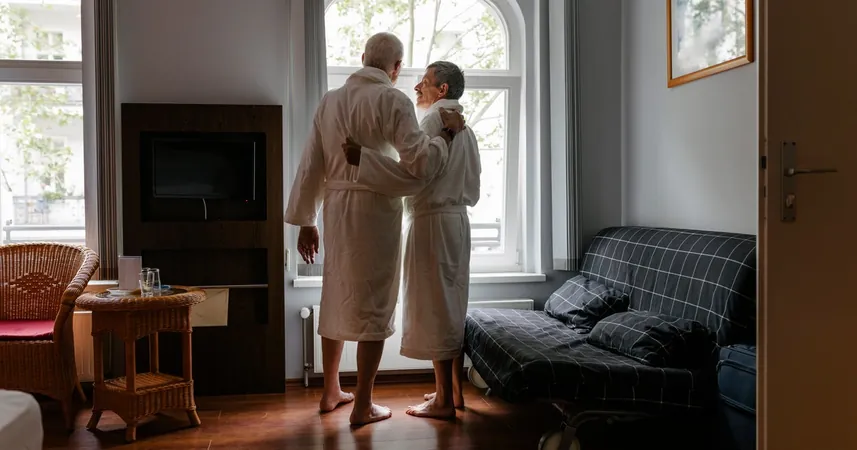
Why Are Seniors Rising Before Dawn? The Science Behind Early Wakefulness
2025-05-24
Author: Jacques
The Age-Old Joke: Seniors vs. Teenagers
We’ve all heard the jokes about older folks waking up at the crack of dawn while teens struggle to roll out of bed. Research shows there's more than just humor to this—it's tied to both our genetics and the natural aging process.
It’s a Natural Shift with Age
As we get older, both our internal and external body systems evolve, leading to significant changes in sleep patterns. According to Cindy Lustig, a University of Michigan psychology professor, age-related changes aren't attributed to just one factor; they are a complex web of interconnected reasons.
Why Are Early Wake Times Normal?
Dr. Sairam Parthasarathy, the director at the University of Arizona Health Sciences, notes that the brain becomes less responsive as it ages. This reduced sensitivity means it might not accurately interpret the day’s signals like sunlight, meals, and social interactions—critical cues that help regulate our sleep-wake cycles.
The Role of Light in Our Sleep Cycle
Vision changes are another culprit. Lustig points out that the decline in visual acuity with age can lessen the light signals our brains receive, impacting our circadian rhythms. For instance, cataracts—affecting over 50% of Americans aged 80 and up—can blur perceptions of light, leading older adults to experience ‘sunset’ earlier than reality.
Melatonin: The Sleep Hormone Effects
When the brain perceives an earlier sunset due to reduced light, it may prompt melatonin production too soon. In contrast, younger people typically feel fatigue in alignment with true sunset times. This early surge in melatonin can lead to earlier bedtimes and, consequently, earlier mornings.
Can Cataract Surgery Help?
Interestingly, evidence suggests that cataract surgery may enhance sleep quality by allowing more light to penetrate, potentially stabilizing the circadian clock.
Tips for Better Sleep in Your Golden Years
If you find yourself waking up too early, don’t despair. Parthasarathy recommends defying the conventional wisdom of screen time restrictions. Instead, expose yourself to bright lights in the evening to trick the brain into thinking it’s still daytime. Whether it’s a walk before sunset or using bright screens, this can help stave off early melatonin production.
Find the Right Exposure Duration
Aim for about two hours of bright light exposure leading up to your desired bedtime, tweaking based on personal experience. Also, steering clear of alcohol before bed can prevent disruptions in sleep quality.
Healthy Habits for Sound Sleep
Engaging in regular exercise and soaking up morning sun can help align your circadian rhythm with the natural light of day.
Embracing Change with Age
While many of these changes are beyond our control, adopting healthier sleep practices can significantly improve the quality of rest. Aging may alter your sleep patterns, but with the right strategies, you can ensure you still get your well-deserved Zzzs!









 Brasil (PT)
Brasil (PT)
 Canada (EN)
Canada (EN)
 Chile (ES)
Chile (ES)
 Česko (CS)
Česko (CS)
 대한민국 (KO)
대한민국 (KO)
 España (ES)
España (ES)
 France (FR)
France (FR)
 Hong Kong (EN)
Hong Kong (EN)
 Italia (IT)
Italia (IT)
 日本 (JA)
日本 (JA)
 Magyarország (HU)
Magyarország (HU)
 Norge (NO)
Norge (NO)
 Polska (PL)
Polska (PL)
 Schweiz (DE)
Schweiz (DE)
 Singapore (EN)
Singapore (EN)
 Sverige (SV)
Sverige (SV)
 Suomi (FI)
Suomi (FI)
 Türkiye (TR)
Türkiye (TR)
 الإمارات العربية المتحدة (AR)
الإمارات العربية المتحدة (AR)